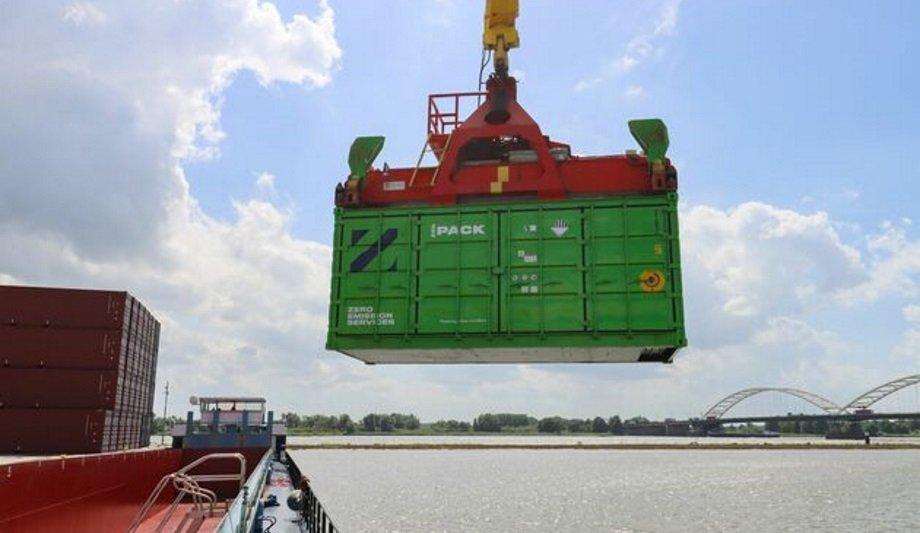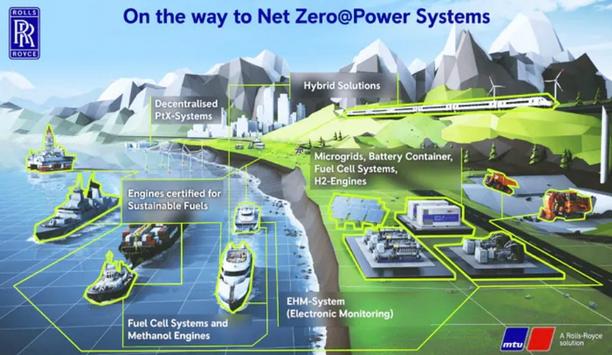In April 2024, the first inland vessel running completely on ZES technology is set to sail with zero emissions between Den Bosch, the Maasvlakte, and Moerdijk (The Netherlands). For electric sailing with standard 20-foot modular energy containers (ZESpacks), a fixed battery package will be installed.
The vessel, the Den Bosch Max Groen, is 90 metres long and was prepared for electric sailing during construction. Initiators Inland Terminals Group (ITG), Nedcargo, and Zero Emission Services (ZES) announced that another four vessels will follow.
Modular energy containers
The ZESpacks will be charged with green energy through ZES’ latest generation of 2x 1MVA charging stations. These charging stations and ZESpacks are equipped with a 1MW Megawatt Charging System (MCS) connector, which allows ZESpacks to be charged in just 3 hours.
Green energy will be provided on the basis of Dutch Guarantee of Origin certificates
Green energy will be provided on the basis of Dutch Guarantee of Origin certificates, and the use of ZESpacks will be based on an innovative pay-per-use billing model. Electrification of the Den Bosch Max Groen is expected to reduce annual emissions of the operation by some 715 tonnes of CO2 and 13 tonnes of NOx. Subsequently, with the expansion of the fleet to five zero-emission vessels, reduction will be increased further.
Zero-emission vessels
To provide the Den Bosch Max Groen and, at a later stage, the Den Bosch Max Blauw, Nijmegen Max, Venray Max, and Roermond Max with fully charged ZESpacks, the latest generation of ZES charging stations will be set up at various strategic locations.
The first charging station will be developed at the BCTN terminal in Alblasserdam, in Q1 of 2024. Charging stations in Den Bosch (BCTN terminal), in Moerdijk, and at the Prins Johan Friso Port in Rotterdam will follow shortly thereafter.



